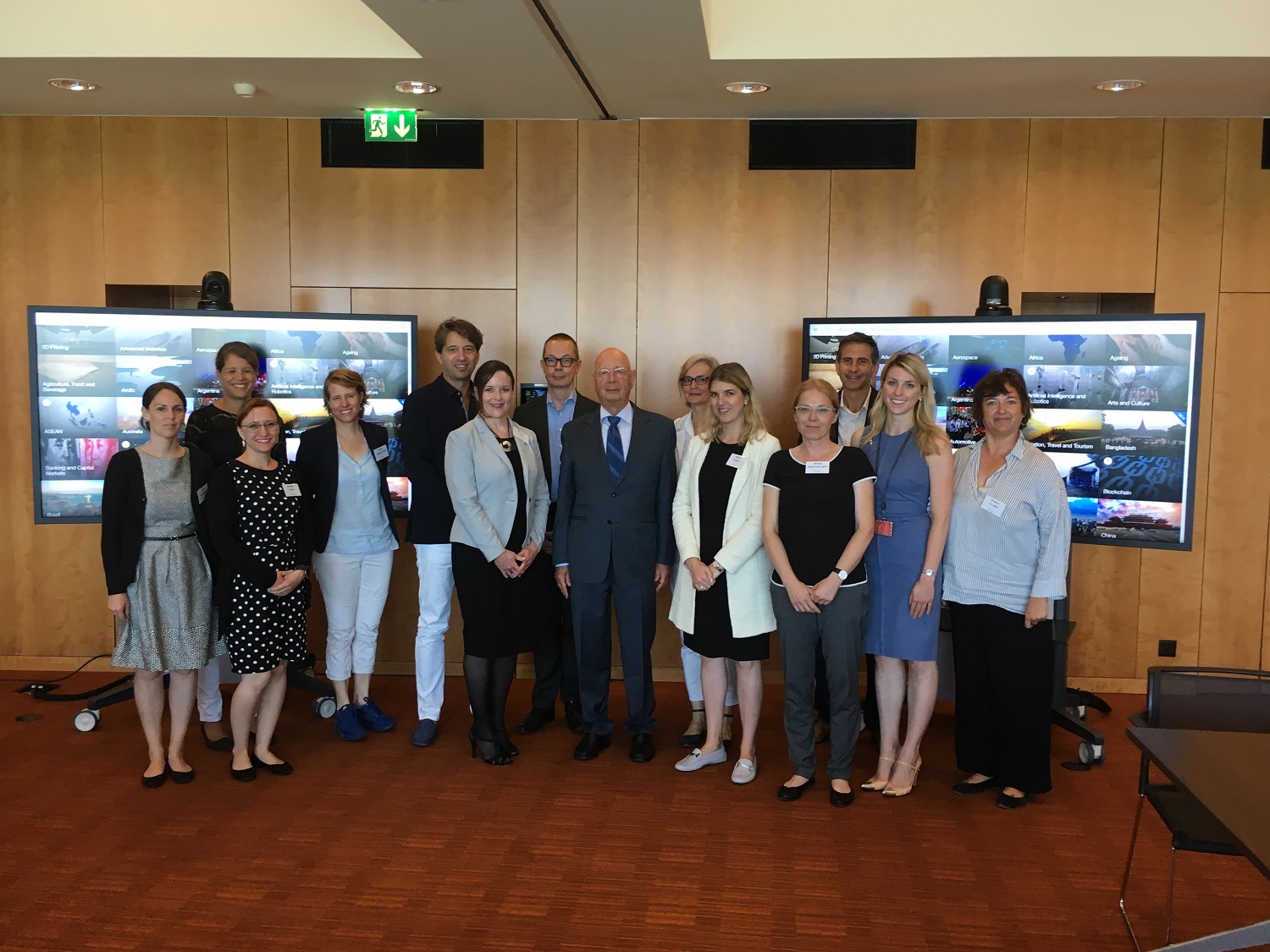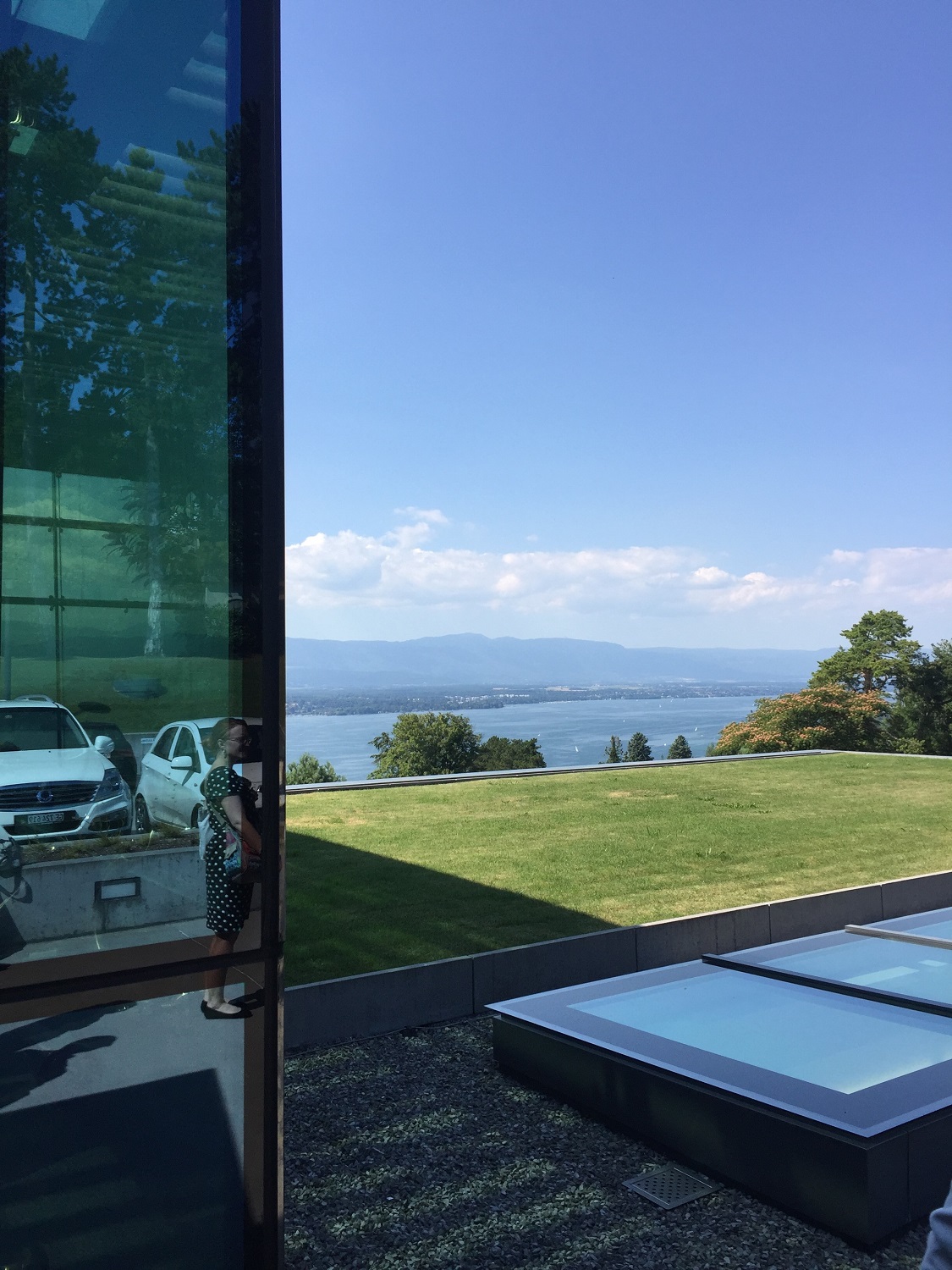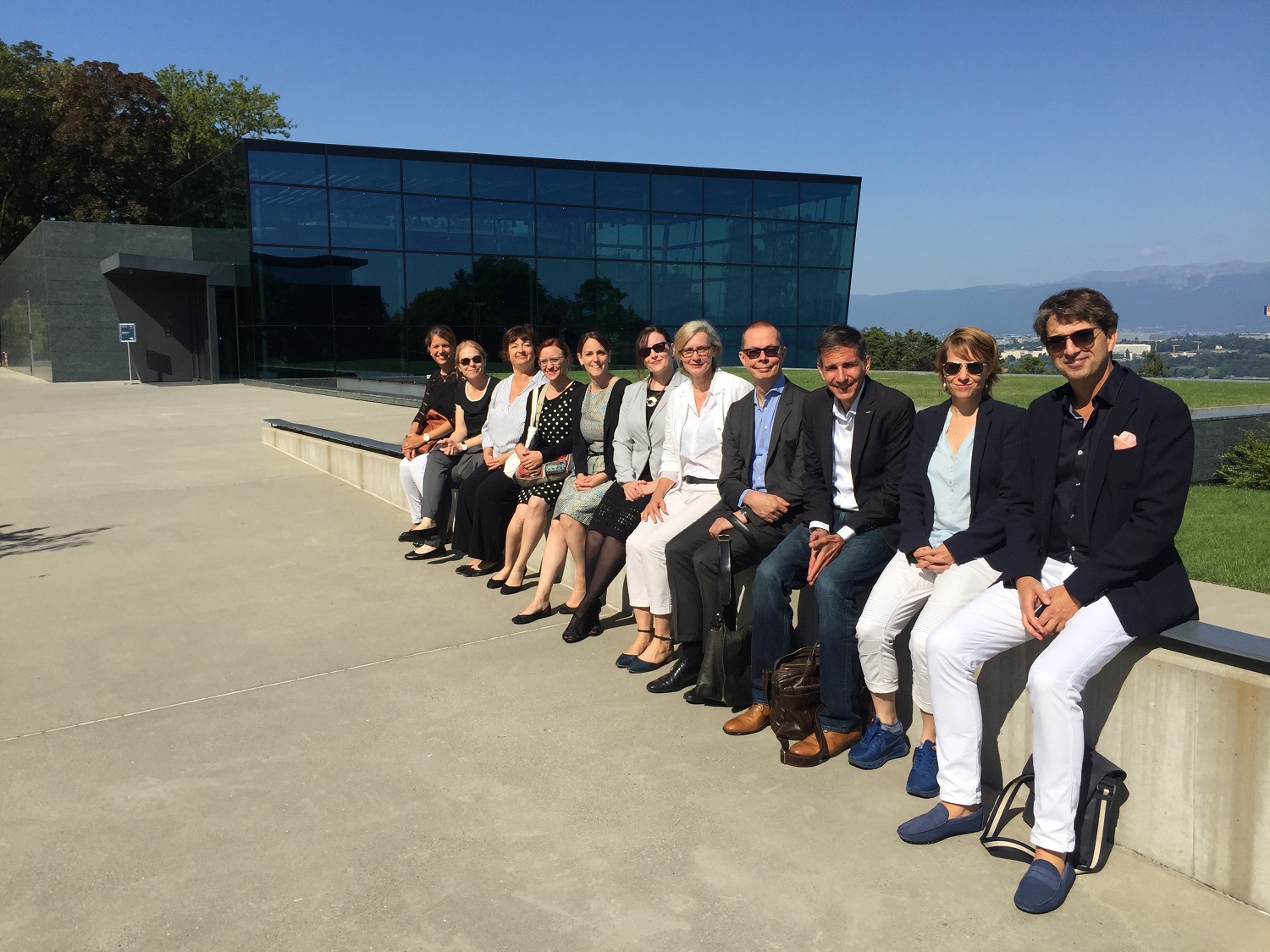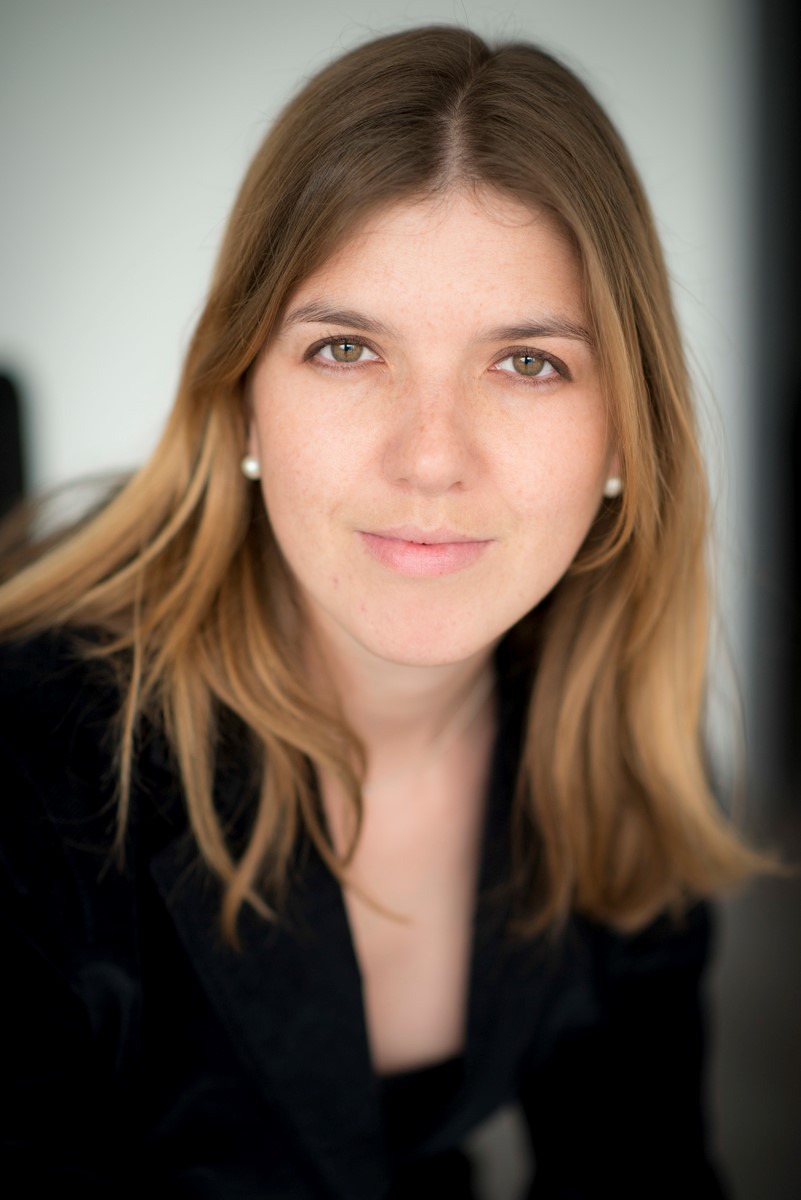For their annual retreat, the ETH Global team likes to get together for strategic discussions on how its work impacts ETH Zurich and what can be done to take it to the next level. In a break with tradition, this year’s offsite involved a visit to an organisation that shares the university’s mission as far as helping to solve the grand challenges faced by society - the World Economic Forum. Headquarted in Cologny, just outside of Geneva, the Forum is the organisation for public-private partnership. Leveraging its unique position as the world’s foremost convening platform, it seeks to resolve complex global issues. Debriefing on the visit during the train ride from Geneva to Zurich, the team synthesised its key takeaways.
Inside the World Economic Forum
by Viktoria Ivarsson, 27.12.2018

The ETH Global team with Prof. Klaus Schwab and Jaci Eisenberg from the WEF (photo credit: ETH Zurich)

View of the Lac Léman (photo credit: ETH Zurich)
Beyond Davos
While the World Economic Forum’s Annual Meeting in Davos undoubtedly remains its flagship event, it is incorrect to assume that this is the only thing the in which the organisation is involved. With a series of meetings throughout the year that span the entire globe, the Forum shapes the industry, regional as well as the global agenda. Through its conferences, it brings together leaders from government, business, academia, NGOs, religion, culture and the arts. Its work on risks and competitiveness position it as a thought leader and the Transformation Maps demonstrate the concept of the inherent interconnectedness of issues in an accessible visual and public display. ETH Zurich has been involved in the co-curation of the Human Enhancement and Future of Production Transformation Maps.
Host with the most
The Forum values its privileged relationship with its host country, Switzerland. ETH Zurich’s pavilion at the Annual Meeting in Davos is very much aligned with this ethos, opening the space with an exhibition dedicated to the general public throughout the meeting, and hosting Swiss decision-makers and politicians for various events. The exhibition in 2018 even highlighted the local government and community through the Challenge Rumantsch Project.
A multistakeholder approach
Complex global interconnected issues require solutions that involve groups from all levels and walks of life. This is the basis of the stakeholder theory developed by the World Economic Forum’s Founder and Executive Chairman, Professor Klaus Schwab – who happens to be an ETH Zurich alumnus. Initially based on the model of a company where the management must represent the interests of all its stakeholders and not just its shareowners, the multistakeholder approach takes things a step further describing how society as a whole, including business, but not in isolation, must come together to solve the world’s grand challenges successfully.

Photo credit: ETH Zurich
Creating and maintaining communities
As part of the Global University Leaders Forum, ETH Zurich is privileged to be a part of the World Economic Forum’s community of university leaders. The Forum builds and facilitates many communities with a view to fostering a dialogue among different stakeholder groups, ensuring that all voices are represented. Another example, shared during the visit was that of the Global Shapers community. Born out of the World Economic Forum, the Global Shapers Community is a network of inspiring young people under the age of 30 working together to address local, regional and global challenges. With more than 7,000 members, the Global Shapers Community spans 376 city-based hubs in 156 countries. Thus, the multistakeholder approach is also intergenerational, guaranteeing that the youth voice enters the debate of the issues on the global agenda.
The ETH Global Team will once again be behind the presence of ETH Zurich in Davos at the Annual Meeting of the World Economic Forum 2019. It will strive to build on its new understanding of that organisation’s mission and values to tell the story of how science and innovation contributes to improving the state of the world.

About the author
Viktoria Ivarsson holds an MAS in Sports Administration and Technology from the Swiss Federal Institute of Technology in Lausanne (EPFL), and an MA in International Relations from the Graduate Institute of International and Development Studies (HEI). She joined ETH Global in April 2018, where she works as an International Relations Officer on projects and events of international scope with a view to increasing the visibility of the university worldwide.


